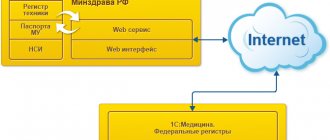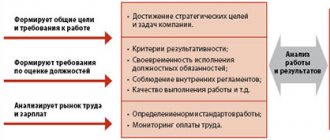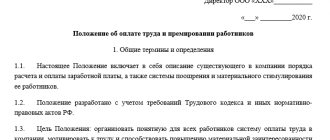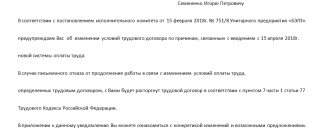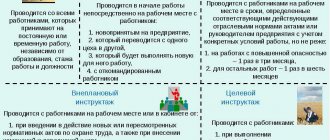Remuneration systems (including tariff remuneration systems) for employees of state and municipal institutions are established:
in federal government institutions - collective agreements, agreements, local regulations in accordance with federal laws and other regulatory legal acts of the Russian Federation;
in state institutions of the constituent entities of the Russian Federation - collective agreements, agreements, local regulations in accordance with federal laws and other regulatory legal acts of the Russian Federation, laws and other regulatory legal acts of the constituent entities of the Russian Federation;
in municipal institutions - collective agreements, agreements, local regulations in accordance with federal laws and other regulatory legal acts of the Russian Federation, laws and other regulatory legal acts of the constituent entities of the Russian Federation and regulatory legal acts of local governments.
The Government of the Russian Federation may establish basic salaries (basic official salaries), basic wage rates for professional qualification groups.
The wages of employees of state and municipal institutions cannot be lower than the basic salaries (basic official salaries) established by the Government of the Russian Federation, the basic wage rates of the corresponding professional qualification groups.
Basic salaries (basic official salaries), basic wage rates established by the Government of the Russian Federation are provided by:
federal government agencies - at the expense of the federal budget;
state institutions of the constituent entities of the Russian Federation - at the expense of the budgets of the constituent entities of the Russian Federation;
municipal institutions - at the expense of local budgets.
Remuneration systems for employees of state and municipal institutions are established taking into account the unified tariff and qualification directory of works and professions of workers, the unified qualification directory of positions of managers, specialists and employees or professional standards, as well as taking into account state guarantees for remuneration, recommendations of the Russian Tripartite Commission on Regulation social and labor relations (part three of Article 135 of this Code) and the opinions of the relevant trade unions (associations of trade unions) and associations of employers.
Professional qualification groups are groups of blue-collar professions and employee positions, formed taking into account the scope of activity based on the requirements for the level of qualifications that are necessary to carry out the relevant professional activity.
Professional qualification groups and criteria for classifying blue-collar professions and employee positions into professional qualification groups are approved by the federal executive body exercising the functions of developing state policy and legal regulation in the field of
Commentary to Art. 144 Labor Code of the Russian Federation
1. The establishment in budgetary institutions of the federal, regional and municipal levels of various systems of remuneration of workers (including tariff systems) through collective agreement and local regulation entails compliance with certain requirements.
2. Such requirements include taking into account the provisions of the relevant regulatory legal acts (of the Russian Federation and constituent entities of the Russian Federation, local governments), the provisions of the ECTS and the EKS, state guarantees for wages, recommendations of the Tripartite Commission on the regulation of social and labor relations, the opinions of the relevant trade unions (associations) trade unions) and employers' associations.
3. The minimum level of remuneration for employees of state and municipal institutions, provided at the expense of the corresponding budget, cannot be lower than the basic level of remuneration established by the Government of the Russian Federation for professional qualification groups of employees.
4. The definition of professional qualification groups and the criteria for classifying blue-collar professions and office positions among them is entrusted to the Ministry of Health and Social Development of Russia as a federal executive body that carries out the functions of legal regulation in the field of labor (see Decree of the Government of the Russian Federation of June 30, 2004 N 321 “On approval of the Regulations on the Ministry of Health and Social Development of the Russian Federation” // SZ RF. 2004. N 28. Art. 2898).
5. The Government of the Russian Federation in Resolution No. 605 of September 22, 2007 “On the introduction of new systems of remuneration for employees of federal budgetary institutions and civilian personnel of military units, whose remuneration is carried out on the basis of the Unified tariff schedule for remuneration of employees of federal government institutions” (SZ RF. 2007. N 41. Art. 4893) provided for the introduction of new remuneration systems for the persons specified in this document in the period from September 1, 2007 to December 31, 2008.
To implement the provisions of this document, a number of normative legal acts had to be adopted, but many of these acts were not adopted.
6. Since December 1, 2008, the Decree of the Government of the Russian Federation of August 5, 2008 N 583 “On the introduction of new remuneration systems for employees of federal budgetary institutions and federal government bodies, as well as civilian personnel of military units, institutions and divisions of federal executive authorities” has been in force , in which the law provides for military and equivalent service, the remuneration of which is currently carried out on the basis of the Unified tariff schedule for remuneration of employees of federal government institutions" (SZ RF. 2008. N 33. Art. 3852).
7. The Decree of the Government of the Russian Federation dated August 5, 2008, having approved the Regulations on the establishment of remuneration systems for employees of federal budgetary institutions, assigned the Ministry of Health and Social Development of Russia the obligation to adopt a number of regulatory legal acts on the introduction of new remuneration systems and provide clarifications on these issues.
8. The following main Orders of the Ministry of Health and Social Development of Russia are in effect:
- dated December 29, 2007 N 822 “On approval of the List of types of compensation payments in federal budgetary institutions and clarification on the procedure for establishing compensation payments in federal budgetary institutions” (Bulletin of Labor and Social Legislation of the Russian Federation. 2008. N 3);
- dated December 29, 2007 N 818 “On approval of the List of types of incentive payments in federal budgetary institutions and clarification on the procedure for establishing incentive payments in federal budgetary institutions” (Bulletin of Labor and Social Legislation of the Russian Federation. 2008. No. 2);
- dated August 27, 2008 N 450n “On approval of Methodological Recommendations for the development by federal state bodies of conditions of remuneration for workers working in them and in their territorial bodies of workers” (Bulletin of Labor and Social Legislation of the Russian Federation. 2008. N 10);
- dated August 14, 2008 N 425n “On approval of Recommendations for the development by federal government bodies and institutions - the main managers of federal budget funds of approximate provisions on the remuneration of employees of subordinate federal budgetary institutions” (Bulletin of Labor and Social Legislation of the Russian Federation. 2008. N 10 );
- dated August 6, 2007 N 525 “On professional qualification groups and approval of criteria for classifying blue-collar professions and employee positions into professional qualification groups” (Bulletin of Labor and Social Legislation of the Russian Federation. 2007. N 10);
- dated May 29, 2008 N 247n “On approval of professional qualification groups for industry-wide positions of managers, specialists and employees” (Bulletin of Labor and Social Legislation of the Russian Federation. 2008. N 7);
- dated May 29, 2008 N 248n “On approval of professional qualification groups of industry-wide professions of workers” (Bulletin of Labor and Social Legislation of the Russian Federation. 2008. N 7);
- dated April 8, 2008 N 167n “On approval of the Procedure for calculating the average salary to determine the size of the official salary of the head of a federal budgetary institution” (Bulletin of Labor and Social Legislation of the Russian Federation. 2008. N 6);
- dated August 14, 2008 N 424n “On approval of Recommendations for concluding an employment contract with an employee of a federal budgetary institution and its approximate form” (Bulletin of Labor and Social Legislation of the Russian Federation. 2008. N 10), etc.
9. Federal state bodies and institutions - the main managers of federal budget funds approve, in agreement with the Ministry of Health and Social Development of Russia:
— lists of key personnel by type of economic activity to determine the salaries of heads of relevant institutions;
— approximate provisions on remuneration of employees of relevant institutions by type of economic activity, taking into account recommendations, approved. Ministry of Health and Social Development of Russia.
10. The Ministry of Health and Social Development of Russia, by its orders, approved professional qualification groups for certain groups of positions depending on the field of economic activity.
11. It should be noted that the regulation of issues of remuneration for a number of categories of workers in the public sector of the economy (federal civil servants, judges, prosecutors, etc.) occurs according to special rules established by regulatory legal acts of various levels (federal laws, acts of the President of the Russian Federation and the Government RF), in the absence of any orderly system in general.
Remuneration in educational institutions.
Paragraph 36 of the Unified Recommendations reveals the specifics of remuneration for teaching staff in educational institutions. In order to develop human resources, increase the prestige and attractiveness of the teaching profession, it is recommended to improve remuneration systems for teaching and other workers, taking into account the redistribution of funds intended for remuneration in organizations, so that funds are allocated to ensure salaries (official salaries) and wage rates for employees at least 70% of the organization’s wage fund. In this case, the part of the wage fund allocated for compensation payments related to work in areas with special climatic conditions, in rural areas, should not be taken into account.
When concluding employment contracts (additional agreements) with teaching staff, it is necessary to ensure that they include conditions related, in particular, to clarifying the rules for applying increasing coefficients for the presence of a qualification category, as well as for other reasons.
Increasing coefficients should be applied by multiplying the amount of wages calculated for the actual volume of teaching load and (or) the actual volume of teaching work from the wage rates provided for each qualification level of the PKG by the amount of increasing coefficients and (or) increases established as a percentage (in absolute values).
If employees have the right to apply increasing factors and (or) increases established in percentages (in absolute values) on several grounds, it is recommended to determine their values for each basis separately without taking into account other increasing factors and (or) increases established in percentages ( in absolute values). Subsequently, these coefficients are summed up and applied by multiplying the resulting value by the amount of wages calculated for the actual volume of teaching load and (or) teaching work.
Second commentary to Article 144 of the Labor Code
1. The title of the article and its content have been changed. In the previous version, the article provided for the right of all employers to establish various systems of bonuses, incentive payments and allowances, taking into account the opinion of the representative body of employees. It also established the procedure and conditions for the use of incentives and compensation payments in organizations financed from the federal budget.
In the new edition, this article provides for the procedure for establishing both payment systems and labor incentives, but only for employees of state and municipal institutions. The procedure for establishing tariff payment systems and stimulating the work of employees of state and municipal institutions is also discussed in Art. 143, according to which these systems are installed for employees of federal state institutions by the Government of the Russian Federation, state institutions of the constituent entities of the Russian Federation - by state authorities of the constituent entities of the Russian Federation, and municipal institutions - by local governments.
Article 144 provides that systems of payment and labor incentives (including tariff systems of payment and labor incentives) are established by collective agreements, agreements, local regulations in accordance with laws (federal and constituent entities of the Russian Federation) and other regulatory legal acts. It seems that the content of these two articles is not consistent and does not answer the question of what is established by the Government of the Russian Federation, the state authority of a constituent entity of the Russian Federation, a local government body, and what is established by collective agreements, agreements, and local regulations.
2. This article establishes a number of guarantees for employees of state and municipal institutions. These include state guarantees for wages that are general for all employees, enshrined in the Labor Code of the Russian Federation, and additional ones: the wages of these employees cannot be lower than the basic salaries, rates of the corresponding qualification groups established by the Government of the Russian Federation. This means that the Government must establish a certain minimum rate (salary), mandatory for both constituent entities of the Russian Federation and local governments. Since the law prohibits setting rates (salaries) below this amount, at the appropriate level it can either coincide with that established by the Government of the Russian Federation or exceed it.
3. For the first time, a new concept of “professional qualification groups” is being introduced into legal regulation. However, the legislator indicates only the most general features of this concept and delegates to the federal executive body, which carries out the functions of developing state policy and legal regulation in the sphere of labor, to establish criteria for classifying the professions of workers and positions of employees to the corresponding professional qualification groups.
Payment for work on a day off (holiday).
When performing work in conditions deviating from normal working conditions (for example, on weekends and holidays), the employee is paid the appropriate payments provided for by labor legislation (Article 149 of the Labor Code of the Russian Federation).
So, in accordance with Art. 153 of the Labor Code of the Russian Federation, work on a day off or a non-working holiday is paid at least double the amount:
1) piece workers - at least at double piece rates;
2) employees whose work is paid at daily and hourly tariff rates - in the amount of at least double the daily or hourly tariff rate;
3) employees receiving a salary (official salary):
- in the amount of no less than a single daily or hourly rate (part of the salary (official salary) for a day or hour of work) in excess of the salary (official salary), if the work on a weekend or non-working holiday was carried out within the monthly working hours;
- in the amount of no less than double the daily or hourly rate (part of the salary (official salary) for a day or hour of work) in excess of the salary (official salary), if the work was performed in excess of the monthly working hours.
At the request of an employee who worked on a day off, he may be given another day of rest. In this case, work on a day off is paid in a single amount, but a day of rest is not subject to payment.
As for clause 7 of the Uniform Recommendations, when paying for work on a day off or a non-working holiday, the employer should be guided by Art. 153 of the Labor Code of the Russian Federation and Resolution of the Constitutional Court of the Russian Federation dated June 28, 2018 No. 26-P. In this ruling, the court noted that when calculating the amount of pay for work on a day off and a non-working holiday, it is necessary to take into account not only tariff rates (salaries), but also other compensation and incentive payments provided for by the wage system for employees of the institution.
Remuneration in sports institutions.
Peculiarities of remuneration in sports institutions are given in paragraph 39 of the Unified Recommendations. Particular attention is paid to the remuneration of coaches in sports organizations. In particular, it is noted that the level of nominal wages in 2020 on average should not be lower than the level achieved in 2020 (determined based on Rosstat data).
The increase in wages should be carried out through budgetary allocations allocated for these purposes, funds received from income-generating activities, as well as received as a result of measures aimed at increasing the efficiency of budget expenditures.
It is recommended that coaches and other specialists establish incentive payments based on the results of passing an independent qualification assessment and obtaining the appropriate certificate. It is recommended to apply increasing coefficients and (or) increases for the presence of a qualification category to wage rates, salaries (official salaries) of coaches and other specialists in the field of physical culture and sports.
Increasing coefficients should be applied to the salaries (official salaries) of athletes for the presence of sports titles and categories, types of incentive payments (taking into account the specifics of remuneration for athletes) for the intensity and high results of work, the quality of work performed, length of continuous work, and length of service.
State and municipal institutions of physical culture and sports are recommended to establish incentive payments for employees implementing experimental and innovative projects in the field of physical culture and sports in addition to the wage rate, salary (official salary).
A coach who has previously participated for at least two years in the training of an athlete who has achieved high results in official sports competitions is entitled to an incentive payment for at least four years from the moment the athlete achieves results.
With the team method of work, it is recommended to pay wages according to the labor participation coefficient of each specific specialist. In this case, the volume, complexity and specificity of the work must be taken into account.
In order to ensure high-quality provision of state (municipal) services (performance of work), labor relations with employees of physical culture and sports institutions must be formalized by an employment contract based on the principles of an effective contract.
Remuneration in healthcare institutions.
The main directions concerning remuneration in healthcare institutions are named in paragraph 37 of the Unified Recommendations. Particular attention should be paid to the procedure for establishing incentive payments to medical workers who directly provide outpatient and inpatient care to women during pregnancy, during childbirth and the postpartum period and newborns, as well as those participating in preventive medical examinations of the child during the first year of life. Payments must be provided for in the regulations on remuneration of employees of the institution. The amount of payments is established depending on the quality of medical care provided in accordance with approved indicators and criteria.
Payments to medical workers employed in harmful and (or) dangerous working conditions must be made in an increased amount only based on the results of a special assessment of working conditions in the amount of at least 4% of the salary (official salary) established for various types of work with normal working conditions.
When conducting a special assessment of working conditions in medical organizations, it is necessary to take into account the specifics of its implementation, enshrined in regulatory legal acts. The assignment of working conditions to the class (subclass) of working conditions under the influence of a biological factor in relation to the workplaces of medical and other workers directly involved in medical activities is carried out regardless of the concentration of pathogenic microorganisms and without conducting research (tests) and measurements.
When assessing the impact of biological factors in the workplace of medical and other workers, one should be guided by the joint explanations of the Ministry of Labor of the Russian Federation No. 15-1/10/B-7756, the Ministry of Health of the Russian Federation No. 16-6/10/2-6553, the Trade Union of Health Workers of the Russian Federation No. 01-A /475 from 09.10.2018.
Remuneration in cultural institutions.
The main provisions for the formation of a remuneration system in cultural institutions are given in paragraph 38 of the Unified Recommendations. It follows from this point that in order to develop human resources, increase the prestige and attractiveness of work in cultural institutions, it is necessary to continue working to increase the share of salary payments in the structure of employees’ wages. It should be balanced in such a way that, without taking into account compensation payments for work in areas with special climatic conditions, at least 50–55% of wages are allocated to salary payments.
In order to improve the quality of provided state (municipal) services (performance of work), incentive payments to employees of cultural institutions should be established taking into account the fulfillment of the provided indicators and criteria for assessing the effectiveness of activities.
As additional methodological assistance based on approved standard industry labor standards, you should use the interactive electronic service “Staffing Schedule Designer for Cultural Institutions,” located on the Internet at shtat.mkrf.ru.


